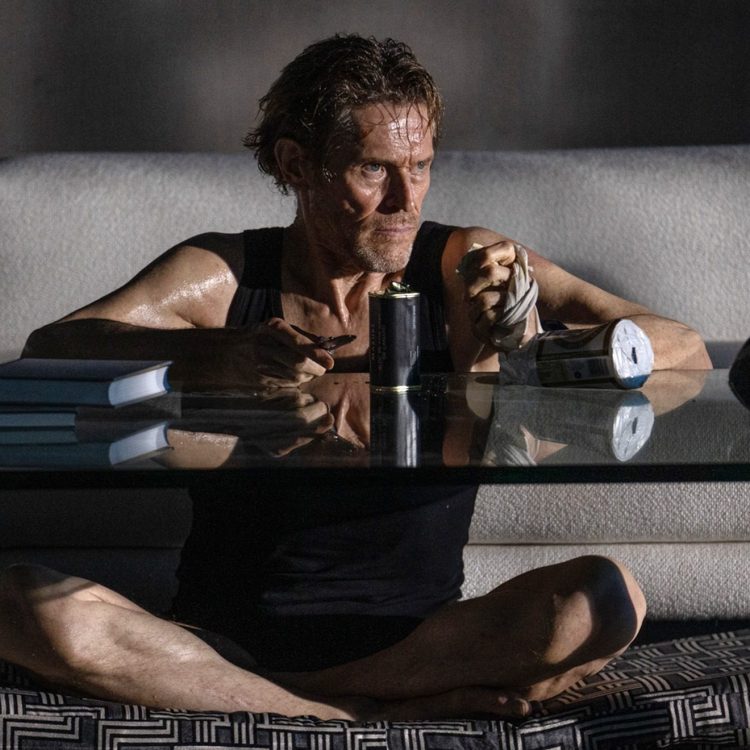When you think about pole dancing, you probably think about strippers. A new Netflix documentary would like to change that, and strippers are understandably unimpressed.
The documentary, Strip Down, Rise Up, explores the world of pole dancing beyond strip clubs, following both newcomers and long-time pole dancers who engage with the practice as a hobby or sport, rather than as professional strippers. The film focuses largely on a group of women who signed up for S Factor, a studio class created by Sheila Kelley and designed to harness the erotic energy of pole dancing sans the male gaze as a form of female empowerment.
Strip Down, Rise Up director Michèle Ohayon has said the film is “simply a different focus on the pole community” that “in no way minimizes or excludes the experiences of strippers.” However, since the film’s premiere earlier this month, current and former strippers have come forward to accuse the documentary of sex-work erasure and appropriation in failing to include the narratives or insight of actual strippers in its coverage of a practice that has its origins in the sex industry.
Speaking to BuzzFeed News, former stripper Alyssa Aparicio, who experienced the S Factor firsthand, said she found the class’s lack of discussion on the sex-work-centric origins of pole dancing disappointing. “I think it being an empowerment class, it doesn’t necessarily have to speak directly to sex work. But I think, having brought pole into it, that they had a responsibility to address that,” Aparicio told the outlet.
Meanwhile, others have taken issue with an implicit juxtaposition the S Factor’s ethos of empowerment seems to establish between pole dancing as sex work and pole dancing outside of the sex industry. Set in a mirrorless room entirely devoid of the male gaze, S Factor classes take great pains to distance themselves from the traditional context in which pole dancing has historically taken place in an attempt to “reframe the pole” and “allow for personal reclamation of the feminine body,” as Kelley, the S Factor founder, explains in a voiceover at one point in the film.
Implicit in this reframing, some current and former strippers have argued, is a whorephobic attempt by the S Factor to distance itself from stripping while appropriating the practice that has long been an integral feature of that industry and culture.
“As a stripper and just as a woman watching that movie, I definitely felt that there was a juxtaposition of bad and good. And it seemed like bad was always in the context of real-life, sex work. And good was always in the context of being as separate as we can from that history,” Aparicio told BuzzFeed News.
In response to the criticism, a spokesperson for the S Factor told BuzzFeed news that Kelley’s mission “continues to normalize sensual feminine movement in the everyday world, with the eventual goal of allowing women to feel comfortable expressing themselves through their own unique body movements and sensuality without fear of reprisal from the patriarchy.”
However, some strippers have argued that the S Factor’s insistence on removing pole dancing from the male gaze in the name of female empowerment frames strippers as victims, if not abettors, of the patriarchy.
“To think that we’re just complicit, it’s kind of really disrespectful to us and just takes away our autonomy, which a lot of people want to do all the time,” April Haze, a 24-year-old stripper, told BuzzFeed News. “I feel like [Kelley] framed it in a way that we are victims of the male gaze almost. And it’s like, No, I use the male gaze to empower myself and reclaim my sexuality.”
It’s also worth noting — as many, many sex industry professionals have — that sex work is one of the only industries in which workers are routinely called to defend their careers as “empowering.” While many strippers and other sex industry professionals may very well find empowerment in their work, that shouldn’t be a criteria by which that work is justified or validated. Sex work is work, and like many people performing generally unfulfilling jobs in various other industries, plenty of sex workers see their work merely as a source of income, which is also fine and valid.
Another thing worth noting? The fact that Netflix has a notoriously rocky history when it comes to handling sex worker narratives. The streaming giant was behind two controversial sex industry documentaries — 2015’s Hot Girls Wanted and the 2017 follow-up series Hot Girls Wanted: Turned On — both of which were accused of failing to protect the privacy of their subjects and for advancing an anti-sex-trafficking narrative that has gained popularity among anti-sex-work abolitionists in recent years, conflating consensual sex work with sex trafficking in an attempt to discredit and disparage the former. Rashida Jones, who produced both documentaries, has recently come under scrutiny within the sex industry again with the announcement of her latest project, forthcoming sex industry documentary Sell/Buy/Date.
Both news of Jones’s latest project and Strip Down, Rise Up come at a time of significant upheaval for strippers and sex workers, who were among some of the hardest- and earliest-hit groups by the pandemic. In addition to club shutdowns, the increasing saturation of online sex work, and the ongoing social media war on sex content, sex workers are also grappling with justified anxiety over their representation — or erasure — in media. It seems they have good reason to be wary.
Thanks for reading InsideHook. Sign up for our daily newsletter and be in the know.

















